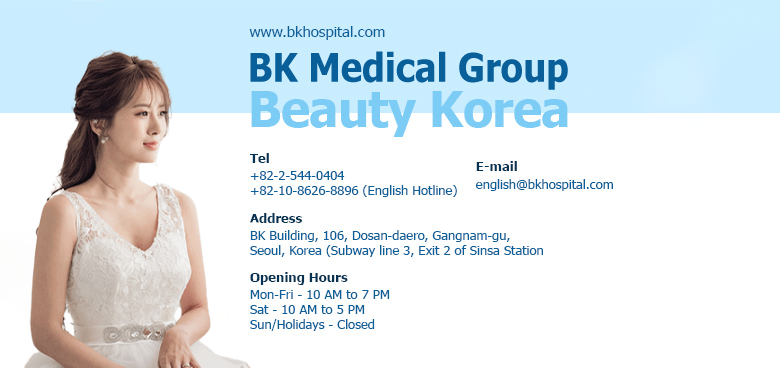Desire for better appearance keeps
South Korea's plastic surgery industry booming.
English.news.cn 2010-08-27 10:32:27
By Yoojung Lee
SEOUL, Aug. 27 (Xinhua) -- "It seems like plastic surgery is a great help to getting a job as external aspects (of a person) matter a lot these days. Therefore, I think well of plastic surgery," said Kim Yuriw.
Kim, a 23-year-old student, was visiting the BK DongYang Plastic Surgery Clinic in Seoul's fashionable district of Gangnam for a consultation with a doctor about a nose job and facial contours.
She is among many who believe better looks tend to provide an edge in this high-pressure society's intense competition for jobs. Nowadays, when applying for jobs, or even part-time jobs, attaching a head-shot photo of oneself on the resume is mandatory in South Korea.
High Demand for Beauty in Appearance
South Korean women's endless desires for better appearance has led to a booming plastic surgery industry in the country. And nowhere has the boom been more apparent than Gangnam, a small but posh neighborhoold of Seoul.
Of 346 plastic surgery clinics that have opened in recent years, 90 percent of them are clustered in 39-sq-km Gangnam, known as the "Mecca of plastic surgery".
More women than ever before, including a growing number of foreigners, flock to Gangnam to attain improved looks through procedures such as eyelid surgery, nose jobs, breast implants, liposuction and silicone injections.
South Korea's standard of beauty has been a more Westernized look -- namely the wider and rounder eyes, white skin and higher nose bridges.
Women's cravings for beauty are so strong that the high cost of plastic surgery hardly seems to affect their decision to undergo surgery.
The cost of double eyelid surgery, most widely demanded among Asian women, varies from
1,000 U.S. dollars to 1,700 dollars; rhinoplasty prices from 2,800 dollars to 5,000 dollars;
simple chin reduction surgery costs from 4,500 dollars to 6,500 dollars.
According to a survey of job seekers, conducted by a Seoul- based online job portal in June,
90 percent of the respondents said they view appearance as an important influence on hiring decisions, while 20 percent answered that they think they were rejected at a job interview
because of their looks.
This social obsession with appearance even encourages young students to go under the knife for surgical improvements, as part of efforts to bring forth a successful future.
Park Ji-eun, 22, who had a nose job at the BK DongYang Plastic Surgery Clinic in May, said: "There are lots of parents who give plastic surgery as a high school graduation gift. So, in such circumstances, I received surgery without any fear".
Kim also said: "I've had no repulsion against plastic surgery because many of my friends in high school received surgery. I think positively about plastic surgery as a chance to gain confidence".
Tremendous Growth of Plastic Surgery Industry
A beauty craze that has captivated the nation has promoted tremendous growth in the plastic surgery industry. Also, with the rising popularity of simple procedures, the plastic surgery industry flourishes like never before
"I've been a plastic surgeon for almost 20 years, and as I remembered, it was a little bit problematic to consider the country being in the ranks of advanced countries in terms of plastic surgery until the mid-90s," said Dr. Hong Sung-bum at the BK DongYang Plastic Surgery Clinic.
"Reliable results have been produced after 1995 as plastic surgeons unsparingly shared their techniques and demonstrated their learnings on patients. The atmosphere was heightened around the year 2000, so I think South Korea's plastic surgery developed and became big around the year 2000," he said.
Plastic surgery has become so common that an estimated 30 percent of South Korean women aged 20 to 50, or about 2.4 million women, had surgical or nonsurgical cosmetic procedures in 2008, with many having more than one procedure, according to Seoul-based ARA Consulting, a medical marketing consulting firm.
These days, the number of middle-age women visiting plastic surgery clinics is particularly on the rise as they seek to look younger through Botox injections, fat grafts or laser treatments.
Dr. Hong's hospital, a 15-story building, provides treatment to between 200 and 300 patients on an average daily basis, of which foreign patients account for about 10 percent. The hospital is equipped with Japanese, Chinese and English-speaking translators for the convenience of foreign patients.
Boosted by the South Korean government's drive to attract more foreign medical tourists, the hospital's doctors travel regularly to the Chinese mainland, Hong Kong and Singapore to practice operations, in a bid to lure new patients from the larger Asian market.
Gloomy Side of Plastic Surgery
South Korean women commonly accept plastic surgery as a means of social and career advancement due to intense value placed on women's physical appearance by society. However, some raise concerns over the dark side of plastic surgery and today's appearance-conscious society
"In South Korea's society, with the economic development it has become more evident for people to find their identity and confidence from external aspects rather than internal aspects," said Whang Sang-min, a professor of psychology at Yonsei University.
"After basic desires, for instance eating and living, are resolved, desires to present oneself good or confident to others emerge," professor Whang said.
Plastic surgery, however, does not always produce the desired results. The elder sister of Chung Ae-ran, a 36-year-old Seoul resident, is one of many who suffer from their new looks which turned out very differently from what they had expected.
Chung said her sister was considering another surgery to correct the unsatisfactory result as she was told by others that she looks angry or fierce after her eyelid surgery.
"The importance of appearance is quite great when women engage in social activities.
People still care more about external looks than abilities when it comes to women, and I think such trend will continue," Chung said.

No comments:
Post a Comment